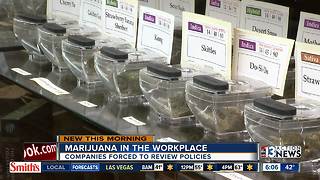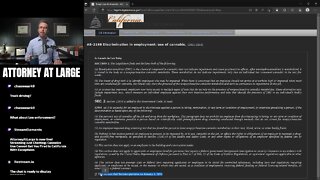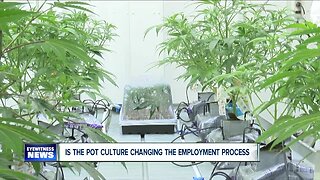"Marijuana and the Workplace: How AB-2188 Affects California Employers and Employees"
California has been at the forefront of marijuana legalization in the United States. In addition to legalizing the recreational use of marijuana, the state has also implemented laws to protect employees who use marijuana when they are not on the job. One of the latest laws, Assembly Bill 2188 (AB-2188), addresses how employers can test employees or potential employees for cannabis.
AB-2188, which goes into effect on January 1, 2024, essentially prohibits employers from discriminating against employees for their off-duty use of marijuana, whether it be for medicinal or recreational reasons. This means that an employee cannot be fired or disciplined for using marijuana outside of work. Moreover, the law also prevents employers from taking action against employees who test positive for non-psychoactive traces of THC or marijuana in a drug test.
However, it's important to note that AB-2188 doesn't mean that employers cannot conduct drug tests. California employers can still perform pre-testing for marijuana and other drugs. But if an employee tests positive for non-psychoactive traces of THC or marijuana, that alone is not enough reason to fire or discipline them. Instead, employers can only take action if they find traces of THC at a level that impairs the employee's ability to perform their job.
It's also important to remember that employers can still prohibit marijuana possession and use in the workplace. They can declare that they want a drug-free work environment, and they can prevent employees from using marijuana while at work. The new law only applies to off-duty use of marijuana.
The rules are the same for medical marijuana as they are for recreational marijuana. Both medical and recreational use is protected in the workplace, but employers can take action if an employee is impaired due to drug use. However, in the case of medical marijuana use, an employee may be protected under the Americans with Disabilities Act if their employer tries to take action against them.
-
 2:20
2:20
KMGH
2 years agoProposed bill would bar employers from firing workers over marijuana-use
222 -
 2:18
2:18
KERO
6 years agoImpact of marijuana in the workplace
2 -
 1:36
1:36
KERO
1 year agoNew law will prohibit employment discrimination for marijuana use in California
71 -
 1:35
1:35
KTNV
6 years agoMarijuana in the workplace questions
-
 1:06:32
1:06:32
WBandG
1 year agoNew York's Marijuana Regulation and Tax Act: What Employers Need to Know
6 -
 9:41
9:41
NapolinAccidentInjuryLawyer
1 year agoCannabis Use Cannot Get You Fired In California With Exceptions
-
 0:43
0:43
WSYM
5 years agoLansing chamber offers guidance to employers about marijuana use
4 -
 2:39
2:39
KMGH
4 years agoBill would prohibit companies from firing employees who legally use marijuana off the clock
6 -
 1:54
1:54
WKBW
5 years agoEmployers not screening for marijuana in drug tests as often
10 -
 8:39
8:39
High At 9 News
9 months agoCornell University's Call for Clarity in Marijuana Employee Regulations 🎓🌿
1